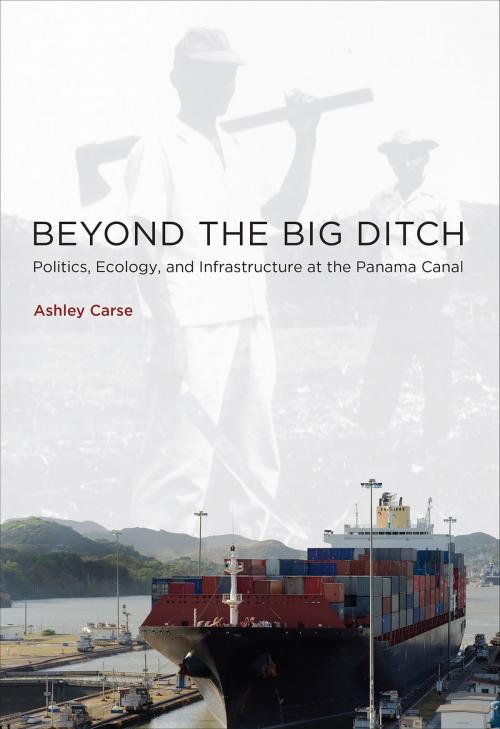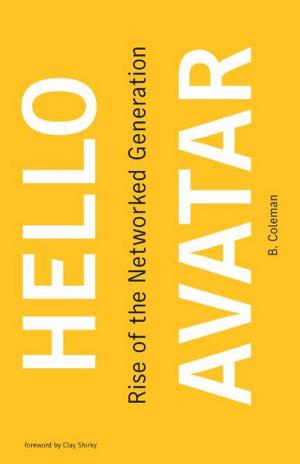Beyond the Big Ditch
Politics, Ecology, and Infrastructure at the Panama Canal
Nonfiction, Social & Cultural Studies, Political Science, Government, Public Policy, Science & Nature, Technology, Engineering| Author: | Ashley Carse | ISBN: | 9780262320474 |
| Publisher: | The MIT Press | Publication: | October 31, 2014 |
| Imprint: | The MIT Press | Language: | English |
| Author: | Ashley Carse |
| ISBN: | 9780262320474 |
| Publisher: | The MIT Press |
| Publication: | October 31, 2014 |
| Imprint: | The MIT Press |
| Language: | English |
A historical and ethnographic study of the conflict between global transportation and rural development as the two intersect at the Panama Canal.
In this innovative book, Ashley Carse traces the water that flows into and out from the Panama Canal to explain how global shipping is entangled with Panama's cultural and physical landscapes. By following container ships as they travel downstream along maritime routes and tracing rivers upstream across the populated watershed that feeds the canal, he explores the politics of environmental management around a waterway that links faraway ports and markets to nearby farms, forests, cities, and rural communities.
Carse draws on a wide range of ethnographic and archival material to show the social and ecological implications of transportation across Panama. The Canal moves ships over an aquatic staircase of locks that demand an enormous amount of fresh water from the surrounding region. Each passing ship drains 52 million gallons out to sea—a volume comparable to the daily water use of half a million Panamanians.
Infrastructures like the Panama Canal, Carse argues, do not simply conquer nature; they rework ecologies in ways that serve specific political and economic priorities. Interweaving histories that range from the depopulation of the U.S. Canal Zone a century ago to road construction conflicts and water hyacinth invasions in canal waters, the book illuminates the human and nonhuman actors that have come together at the margins of the famous trade route. 2014 marks the 100th anniversary of the Panama Canal. Beyond the Big Ditch calls us to consider how infrastructures are materially embedded in place, producing environments with winners and losers.
A historical and ethnographic study of the conflict between global transportation and rural development as the two intersect at the Panama Canal.
In this innovative book, Ashley Carse traces the water that flows into and out from the Panama Canal to explain how global shipping is entangled with Panama's cultural and physical landscapes. By following container ships as they travel downstream along maritime routes and tracing rivers upstream across the populated watershed that feeds the canal, he explores the politics of environmental management around a waterway that links faraway ports and markets to nearby farms, forests, cities, and rural communities.
Carse draws on a wide range of ethnographic and archival material to show the social and ecological implications of transportation across Panama. The Canal moves ships over an aquatic staircase of locks that demand an enormous amount of fresh water from the surrounding region. Each passing ship drains 52 million gallons out to sea—a volume comparable to the daily water use of half a million Panamanians.
Infrastructures like the Panama Canal, Carse argues, do not simply conquer nature; they rework ecologies in ways that serve specific political and economic priorities. Interweaving histories that range from the depopulation of the U.S. Canal Zone a century ago to road construction conflicts and water hyacinth invasions in canal waters, the book illuminates the human and nonhuman actors that have come together at the margins of the famous trade route. 2014 marks the 100th anniversary of the Panama Canal. Beyond the Big Ditch calls us to consider how infrastructures are materially embedded in place, producing environments with winners and losers.















